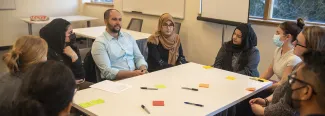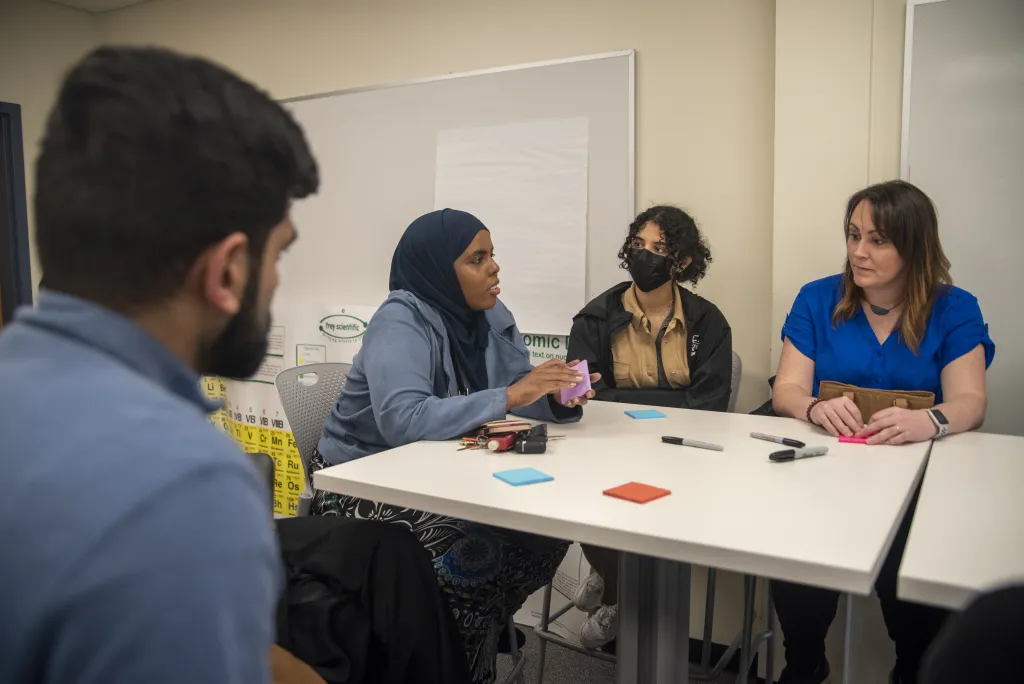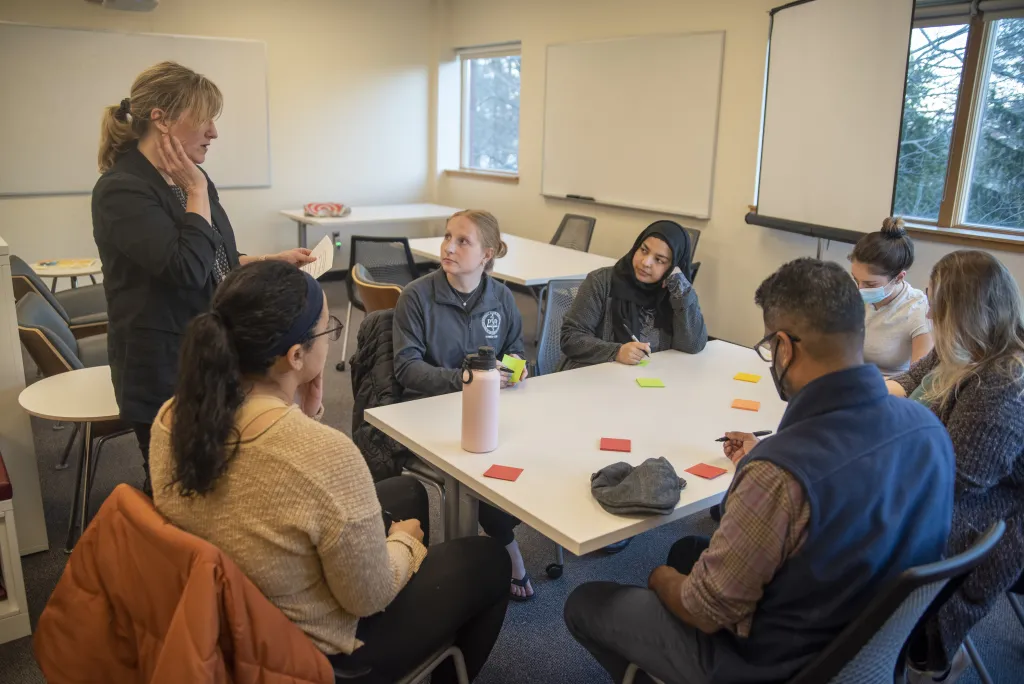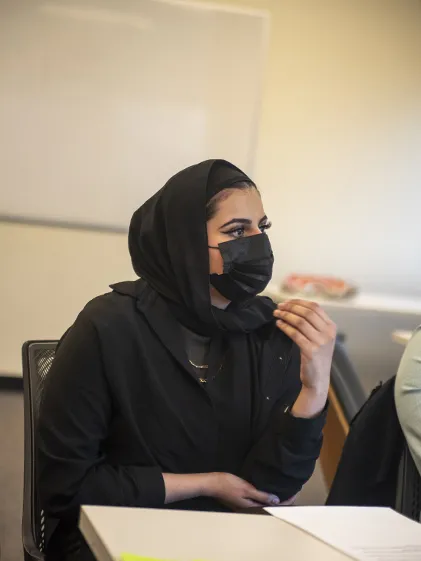
One of the first things Labina Faizizada (Medical Biology, ’22) remembers as a volunteer at Southern Maine Health Care’s designated immigrant and refugee clinic is the health providers expressing their difficulties communicating with their migrant patients.
In need of a project to round out her year as an inaugural member of UNE’s Shaw Innovation Fellows program, Faizizada saw an opportunity to engage those at her university’s own medical school, the UNE College of Osteopathic Medicine (UNE COM), in a roundtable discussion about cultural competency in health care.
The event came to fruition on Tuesday, April 19, and saw dozens of UNE COM students and other members of the UNE community gathered in Marcil Hall.
There, they engaged in productive conversations about the differences in health care and medicine across geopolitical lines and how health providers can best accommodate those whose cultures they may not be familiar with.
UNE welcomed Jessica Goodkind, Ph.D., director of the Refugee Well Being Project at the University of New Mexico, for a brief introduction to the concepts of cultural humility and strategies for working with patients across cultural barriers. Additional speakers and group leaders at the event included Amran Osman, community resources coordinator at Gateway Services; Israa Enan, community health worker at Gateway Services; and Samar Khudar, program coordinator at the New England Arab American Organization.
Faizizada said the discussion was designed to facilitate empathy toward immigrants and refugees as they become adjusted to the American health care system.
“When you’re treating someone, you want to be confident in what you’re doing and how you communicate with them,” said Faizizada. “I hope that my peers at UNE COM, when they become doctors and once they have immigrant and refugee patients, they can remember this workshop.”

Participants gather to discuss strategies for expanding cultural humility in the health care setting.
Faizizada emphasized the importance of cultural humility — the ability to acknowledge one’s own biases and having an openness to earnest understanding of another’s cultural identity — for medical providers because it will allow them to better treat all patients who come through their doors.
“Cultural humility is important in order to break down certain stigmas and barriers that exist about immigrants and refugees,” she explained. “Stigmas are a bigger problem than many think, and when we don’t attempt to be competent regarding other cultures, that causes discrepancies in health care, and people don’t get adequate care.
Faizizada said planning for the event was a learning experience, coordinating speakers, breakout sessions, and food and encountering unexpected challenges along the way.
“It took a while to get to this point, and I learned that if you want to create change in real life, you’re going to come across a lot of barriers,” she explained. “It’s good to have seen that and to have gone through these hurdles, because that’s representative of real life. You have to be your own advocate.”

Justine Bassett, director of Innovation at UNE, outlines the processes for the cultural competency roundtable.
Justine Bassett, M.S., director of Innovation and the P.D. Merrill Makerspace at UNE, lauded Faizizada’s efforts to better cultural competencies for her fellow students.
“It is remarkable to me how much value Labina has been able to offer to so many people, especially as an undergraduate,” Bassett remarked. “Her extensive community engagement, language skills, and passion for making a difference has enabled her to bring value to not only patients at the clinic, but also to medical students who share her passion for better cross-cultural competencies in health care. She has brought something special to our community."
